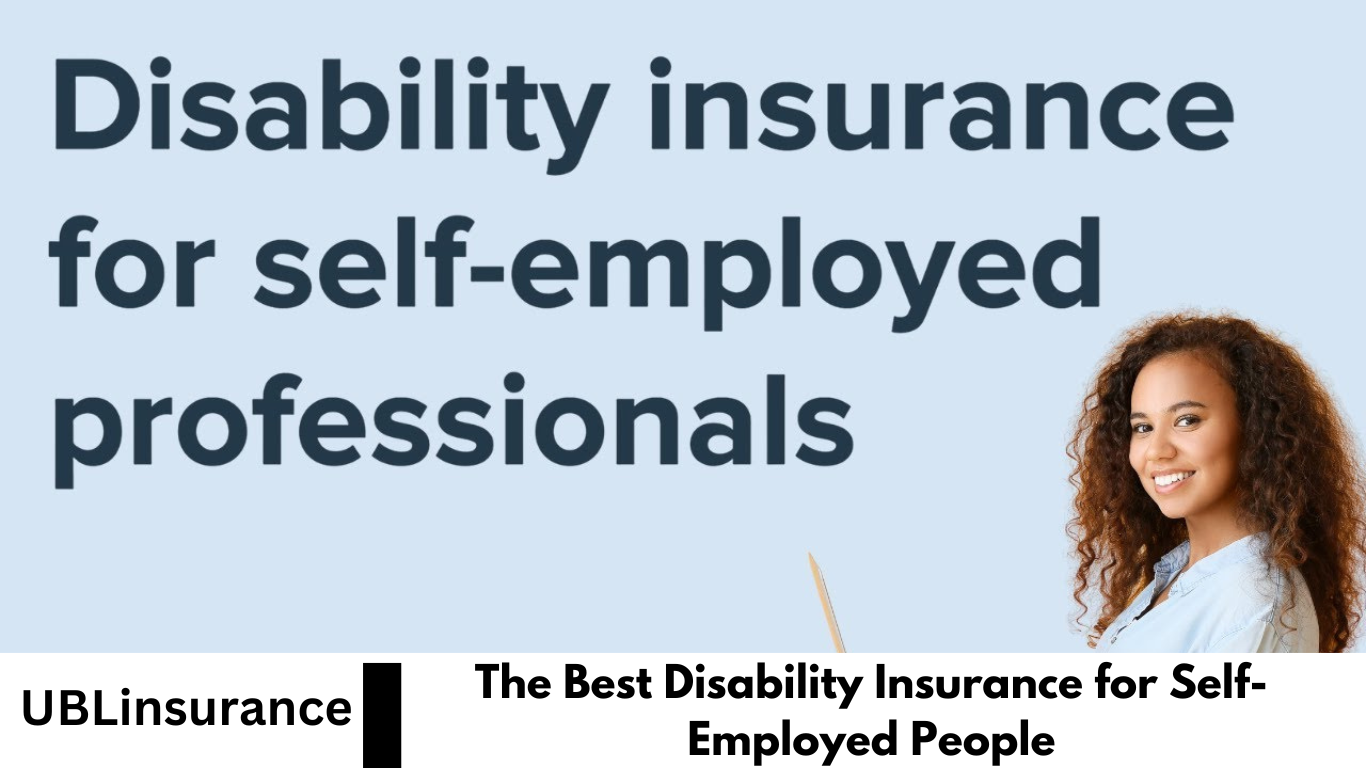For self-employed individuals, your ability to work is your greatest asset. If illness or injury prevents you from earning a living, you could face serious financial challenges without a safety net. That’s why disability insurance for self-employed people is so important. Unlike traditional employees who may receive disability benefits through an employer, freelancers, contractors, and entrepreneurs must seek out their own coverage. Disability insurance provides income replacement—typically 60–70% of your income—if you’re unable to work due to a qualifying medical condition.
The best disability insurance for the self-employed balances affordability with strong coverage, fast claim processing, and flexible terms. Top providers often include Guardian, Mutual of Omaha, Breeze, and Principal, offering plans tailored to the unique needs of freelancers and business owners.
Introduction to Disability Insurance for the Self-Employed

Disability insurance is a vital financial tool for self-employed individuals who rely entirely on their ability to work for income. Unlike salaried employees who may receive coverage through their employers, self-employed professionals—freelancers, consultants, business owners—must arrange their own protection. Disability insurance provides income replacement if they become unable to work due to illness or injury.
Why Disability Insurance Is Crucial for the Self-Employed
Self-employed individuals don’t have the safety net of paid sick leave or employer-provided insurance. A sudden accident, illness, or long-term disability can result in:
- Loss of income
- Inability to cover business expenses
- Risk of bankruptcy
- Inability to support dependents
Types of Disability Insurance for Self-Employed Individuals
There are two main types:
- Short-Term Disability Insurance: Covers temporary disabilities and offers benefits typically for 3–6 months.
- Long-Term Disability Insurance: Provides coverage for more severe conditions that prevent working for extended periods, potentially until retirement.
Some plans also include:
- Own-Occupation Coverage: Pays benefits if you’re unable to perform your specific job, even if you could work in another field.
- Business Overhead Expense Insurance: Covers ongoing business expenses while you’re disabled.
Key Features to Look For in a Policy
When choosing the best disability insurance, consider:
- Benefit Amount: Typically replaces 60–70% of your pre-disability income.
- Elimination Period: The waiting period before benefits begin (usually 30–90 days).
- Benefit Period: Length of time you’ll receive benefits (2 years, 5 years, or until retirement).
- Definition of Disability: “Own occupation” vs. “any occupation.”
- Premium Cost: Varies based on age, health, occupation, and coverage amount.
- Riders/Extras: Options like cost-of-living adjustments or future purchase riders.
Top Disability Insurance Providers for Self-Employed
Some of the most reputable companies offering tailored disability insurance for self-employed individuals include:
- Guardian Life: Strong “own-occupation” coverage with customization.
- Principal Financial Group: Competitive pricing with robust benefits.
- Mutual of Omaha: Good for affordability and flexibility.
- MassMutual: High-quality long-term coverage and solid reputation.
- The Standard: Offers comprehensive policies and rider options.
How to Apply for Disability Insurance
Here’s a simplified application process:
- Assess Your Income and Needs: Estimate your monthly expenses and required coverage.
- Research Providers: Compare policies, reviews, and coverage options.
- Get Quotes: Use brokers or online tools for multiple quotes.
- Complete Medical Underwriting: Most insurers require a health check or questionnaire.
- Customize Your Policy: Add riders as needed.
- Finalize and Purchase: Review terms carefully before signing.
Tips for Managing Costs and Getting Approved
To make disability insurance affordable and increase approval chances:

- Apply When You’re Healthy: Pre-existing conditions may raise premiums or cause denial.
- Choose a Longer Elimination Period: Waiting 90+ days can reduce premiums.
- Buy Early: Younger applicants pay lower premiums.
- Maintain Good Records: Proof of income (tax returns, bank statements) is essential.
- Consider Partial or Residual Disability Riders: These provide benefits if you can still work part-time.
Frequently Asked Questions
What is disability insurance for self-employed individuals?
It replaces a portion of your income if you can’t work due to illness or injury.
Do self-employed people really need it?
Yes—without employer-sponsored coverage, you’re fully responsible for protecting your income.
How much coverage should I get?
Aim for 60–70% of your average monthly income to cover essential living expenses.
What’s the difference between short-term and long-term disability insurance?
Short-term covers a few weeks to months; long-term can provide benefits for years or even until retirement.
How is the cost determined?
Premiums depend on age, occupation, income, health, coverage amount, and waiting period.
What is an elimination (waiting) period?
It’s the time you must wait after becoming disabled before benefits begin—usually 30 to 90 days.
Can I get coverage if I have pre-existing conditions?
Possibly, but you may pay higher premiums or face exclusions depending on the condition.
Are premiums tax-deductible?
For self-employed individuals, premiums may be deductible—consult a tax advisor.
Can I keep the policy if I change professions?
Yes, most individual policies are portable and remain in effect regardless of job changes.
Which companies offer the best policies?
Top-rated providers include Guardian, Principal, MassMutual, Breeze, and Mutual of Omaha.
Conclusion
Disability insurance is a must-have for self-employed individuals who rely solely on their ability to work. Without employer benefits, a single illness or accident could threaten your income and stability. The best disability insurance plans offer customizable options, reliable payouts, and strong financial backing to support you during tough times. By choosing a reputable insurer and tailoring the policy to fit your profession and income level, you gain peace of mind and long-term security. Whether you’re a freelancer, consultant, or entrepreneur, disability insurance is a smart and necessary investment in your business—and your well-being.




